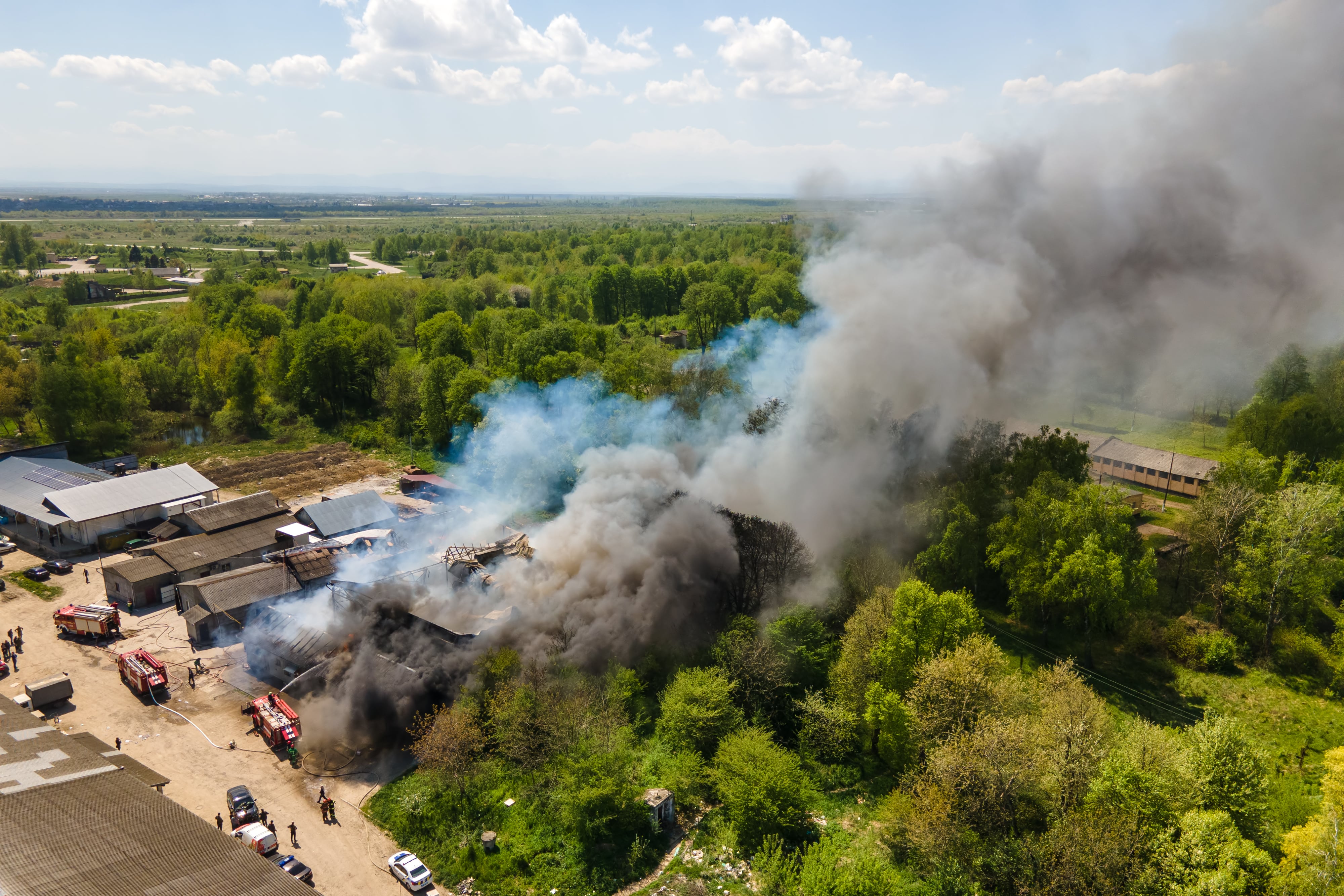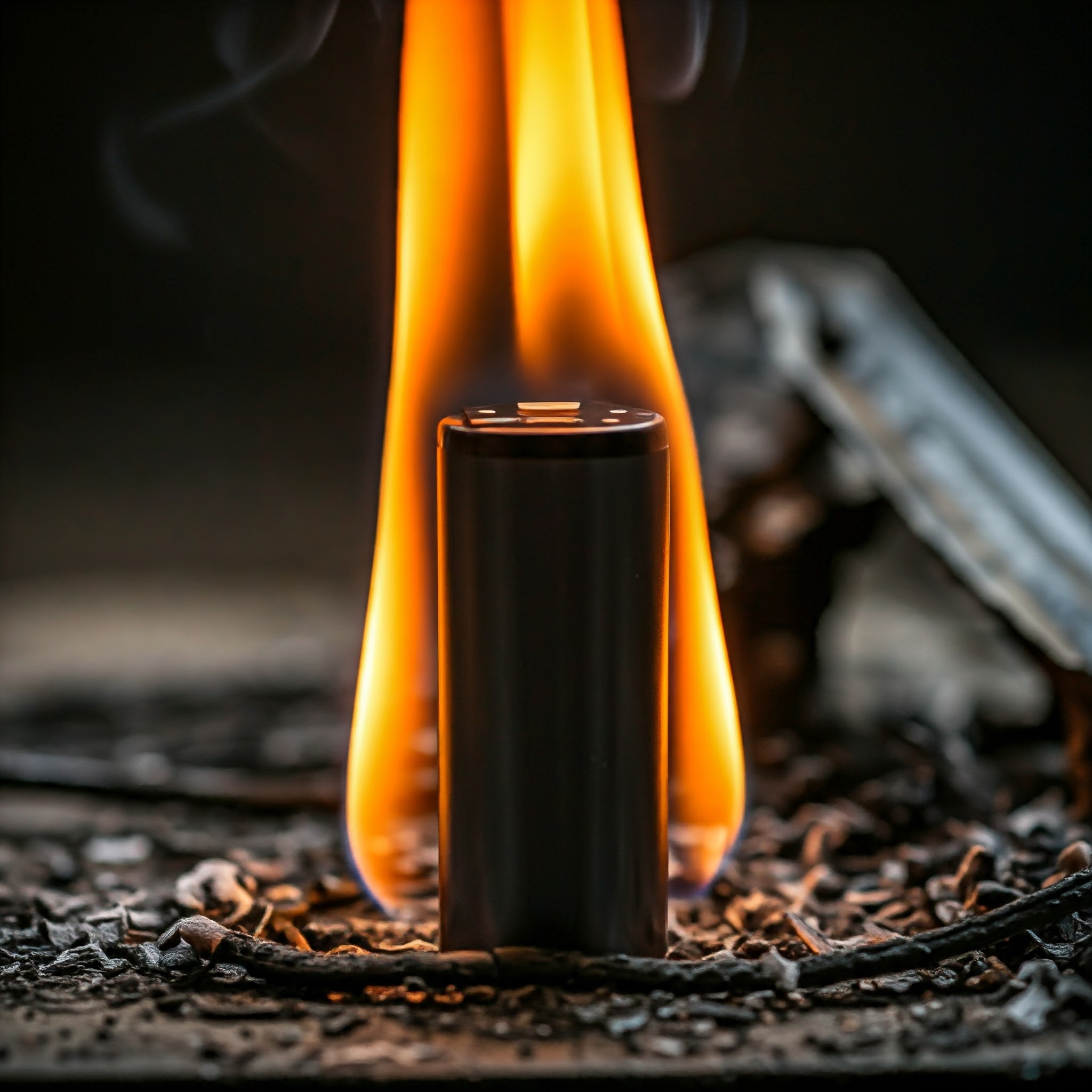Since 2018, October 14th has been recognised as International E-waste Day, with First Mile and other organisations working to raise awareness about the growing issue of electronic waste and its impact on society.
We use International E-waste Day to encourage businesses around the country to bring attention to this problem in any way they can, whether it’s via social media campaigns or by educating younger generations, at school or at work, on how to reduce electronic waste.
You can also register your business with the WEEE Forum, the creators of International E-waste Day, and become an official participant, joining the 195 companies from 55 countries that took part in the incentive last year.
Lithium battery fires: a growing risk in the UK

This year, as technology continues to play a significant role in our daily lives, we are focusing on the issue of lithium batteries, which power laptops, mobile phones and other electrical equipment, and examine whether they pose a growing problem.
In 2023, the United Kingdom registered an all-time high of 1,200 battery fires in lorries and waste sites across the country, which was a 71% increase on the 700 reported in 2022.
It’s estimated that over 6 billion batteries were thrown away last year, which includes 1.1 billion electricals containing lithium-ion (or lithium) batteries.
Because of this, the National Fire Chiefs Council has announced: “Fires involving the incorrect disposal of lithium-ion batteries are a disaster waiting to happen. Fire services are seeing an increasing number of incidents, but they are preventable by correctly and carefully disposing of electricals.”
First Mile has experienced this first hand, as over the past year, two of our waste-collecting trucks were damaged due to the unsafe disposal of lithium batteries.
Are lithium batteries dangerous?
Given the number of fires caused by this type of battery, it's natural to question their safety. However, the answer is simple: no, they are not dangerous!
If they were hazardous, manufacturers would not use them in their products, as they wouldn’t want to put customers at risk or face potential lawsuits.
Products containing lithium batteries undergo rigorous testing to ensure safety. So, if you’re concerned about whether the batteries can catch fire when not in use, you can rest assured that this is extremely unlikely.
The risk of combustion occurs when the batteries are poorly disposed of, such as throwing them in general waste instead of ensuring they are being collected by or taken to a recycling service that knows how to handle them accordingly.
Lithium batteries are at their most dangerous when submerged in water or damaged; two scenarios that can easily occur when discarded in a normal bin.
Let’s say, for example, that a phone with its battery still inside is placed with general waste. It will then be taken outside and potentially get wet (it rains a lot in the United Kingdom), before being collected and likely damaged when dumped in a general waste truck.
This is when a normal lithium battery can turn into what is increasingly known as a ‘zombie battery’.
What are ‘zombie batteries’?

This is the term given to batteries that have been damaged in some shape or form after being improperly disposed of, and then suddenly catch fire.
There is no way of knowing when this combustion will occur, meaning it could take place in a truck carrying waste (as has happened to us), on the sorting belt at a waste facility (potentially injuring workers) or on a landfill, where a much bigger fire could start.
This is why we are using this International E-waste Day to bring awareness to the issue and urge people to dispose of their electronics in a safe manner.
Lithium battery safety precautions
There are two ways to properly and safely throw away your used (and undamaged) products containing lithium batteries:
- If you only have a few, you can take them down to your nearest recycling facility, who are fully equipped to deal with these items. You can also go down to one of several electrical retailers and large stores that offer such recycling services.
- If you are a business that produces a lot of electronic waste, including lithium batteries, we recommend using a commercial waste collection company that will help dispose of and recycle your waste in a safe and sustainable manner.
At First Mile, we offer both WEEE Recycling and Battery Recycling services for businesses depending on your needs.
WEEE (Waste from Electrical and Electronic Equipment) collection focuses on the products themselves, such as mobile phones and laptops, while our battery disposal service is for loose batteries only.
If you notice that a lithium battery is either leaking electrolyte, bulging or producing unusual smells, please contact First Mile on 0333 300 3448, and our recycling experts will walk you through the required steps to ensure it is disposed of safely.
Lithium battery regulations
Currently, the United Kingdom doesn’t have a specific set of laws regarding the handling and disposal of lithium batteries. However, they do fall under the Batteries and Accumulators (Placing on the Market) Regulations 2008 which mandates the collection and recycling of batteries and accumulators, prohibits their incineration or disposal in landfills, and restricts certain substances used in their production.
Also, the ‘Lithium-ion Battery Safety Bill [HL}’ is currently being debated in Parliament and recently underwent a second reading in the House of Lords on September 6th. If passed, this legislation would establish regulations for the safe storage, use, and disposal of lithium batteries in the UK.
It is also worth noting that following the July 2024 election, the new Labour government committed to introducing a ‘Product Safety and Metrology Bill’ during the King’s Speech, which would enable the country to “address challenges” arising from advances in technology, such as the risk of fires from products such as e-bikes and lithium batteries.
In the meantime, if you have a need to dispose of any battery or electronics, please visit our Battery Recycling and WEEE Recycling pages to get a free quote and arrange a collection in a matter of minutes.


